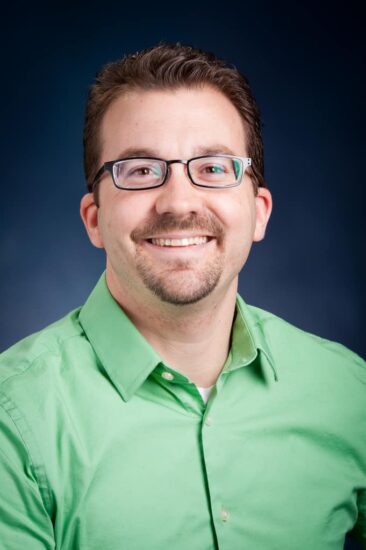Dr. Curt Carlson Receives Award for Cognitive Research

Dr. Curt Carlson, Assistant Professor of Psychology at Texas A&M University-Commerce, was recently awarded the 2013 Junior Faculty Research Award from the university.
Dr. Carlson is the Coordinator of the Educational Psychology Doctoral Program, and his award-winning research revolves around cognitive psychology. Specifically, he applies information from basic cognitive literature to significant real world problems. His most recent work focuses on problems of eyewitness identification.
“There are currently 311 innocent men who have been released from prison based on DNA exoneration,” said Carlson. “Approximately 75% of these cases were driven by faulty eyewitness identification, by far the single largest cause of these miscarriages of justice. My work into this problem is two-fold: 1) to understand the cognitive processes driving these errors, and 2) to improve upon existing police procedures to make these miscarriages of justice less likely.”
He has published several scientific, empirical, peer-reviewed articles on these issues. The innovative nature of this research features interactions between elements of a crime that can affect how an eyewitness perceives it. Specifically, if a perpetrator has a weapon, eyewitnesses typically perform worse during a subsequent lineup, likely due to paying more attention to the weapon than the perpetrator's face. However, if the perpetrator has a distinguishing mark, such as a scar, mole or tattoo, the pattern is more likely to reverse. He is perhaps the only cognitive researcher in the world to work with witnesses being able to differentiate between perpetrators. Understanding how the mind works in adrenaline-rushing situations, such as witnessing a crime, has real world consequences. Carlson's findings provide powerful evidence against the status quo regarding certain police procedures such as, composite faces and lineups.
“Regarding composite faces, I found that the software (FACES 4.0) used by most police in this country produces faces that are not processed cognitively like real faces,” said Carlson. “This could have profound effects on their use by police to find a perpetrator after a crime.”
The university's Junior Faculty Research Award is given to recipients in appreciation of their outstanding and innovative research efforts, especially since joining the A&M-Commerce faculty.
“We are truly fortunate to have Dr. Carlson as a faculty member at A&M-Commerce,” said Dr. Arlene Horne, Vice Provost for Research and Dean of Graduate Studies. “Because of the creativity and impact that his research demonstrated, it was clear that his work reflects the intent of this award.”
Carlson believes that his time on campus has benefited him tremendously. After five years in Commerce, he is going up for tenure this year, and he is grateful to his colleagues and department for providing him with a platform for research productivity.
“I am excited, yet humbled to receive this award as I know there are many other excellent researchers at this university,” said Dr. Carlson. “I am very happy to be representing my department and college in this way.”


